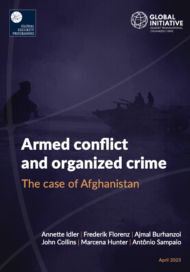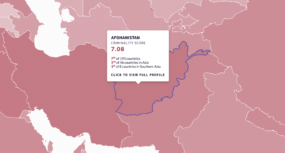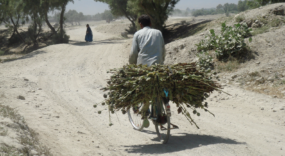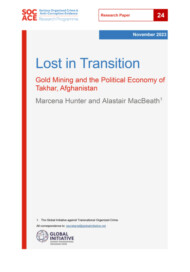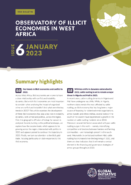Posted on 19 Apr 2023
This paper contributes to research on the relationship between conflict and organized crime (the crime-conflict nexus), using Afghanistan as a case study.
For the past four decades, Afghanistan has been plagued by internal armed conflict, influenced by local, national, regional and international external actors, and the intricate relationships among them. To varying degrees, power, politics and criminality informed these relationships. Organized crime provides actors in Afghanistan with significant political power, while powerful political actors are uniquely positioned to reap the profits of the country’s criminal markets.
This paper gives an account of the existing literature on Afghanistan’s crime–conflict nexus, identifying some of the key insights that this literature has revealed. To do so, it uses a four-pronged framework, exploring how conflict has fuelled organized crime in Afghanistan; how organized crime has fuelled conflict; how conflict over the control of illicit markets has resulted; and how organized crime has contributed to the erosion of the state. By assessing the literature on Afghanistan’s crime–conflict nexus, the paper identifies knowledge gaps and suggests areas for future research.
